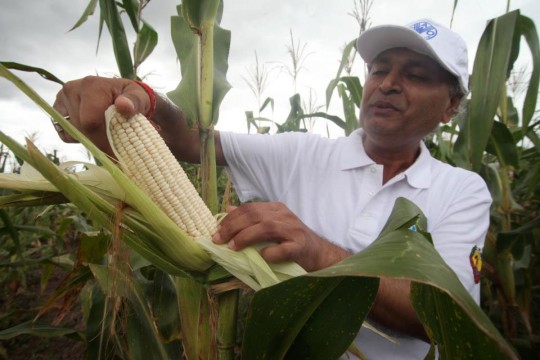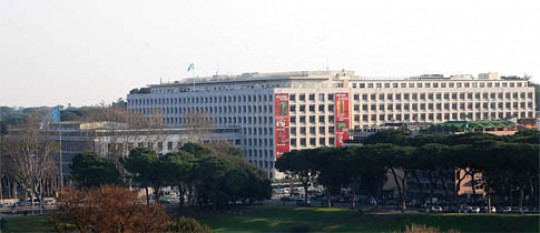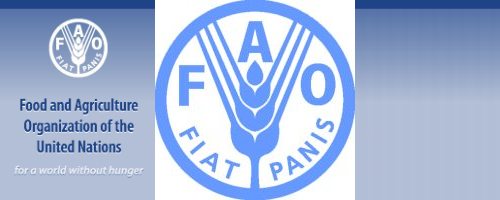New UN initiative to boost Mozambican crop yields
New UN initiative to boost Mozambican crop yields
 FAO has assisted Mozambique in stepping up quality seed production to increase crop yields
FAO has assisted Mozambique in stepping up quality seed production to increase crop yields
A new United Nations initiative in Mozambique aimed at increasing the quality of seeds will help the African country capitalize on its arable land and unlock its potential, the Organization’s agricultural agency announced today.
The effort, launched by the Food and Agriculture Organization (FAO), seeks to help Mozambican farmers by increasing the quality of local seed production and boosting the country’s overall crop yields.
“Increasing agricultural production in a country whose yields are among the lowest in the world starts with boosting productivity,” said José de Graça, the coordinator for the FAO project in the country.
Increasing agricultural production in a country whose yields are among the lowest in the world starts with boosting productivity.
According to FAO, only 10 per cent of Mozambique’s arable land is cultivated and most farmers still use sub-standard seeds. Following a surge in global food prices during the 2007-2008 biennium, the UN initiative has become central to guaranteeing food stability across the country.
“It has become crucial to increase production,” said Mahomed Valá, national director of agrarian services in Mozambique’s agriculture ministry. “At least 15 per cent of our farmers should have access to quality seeds in five to six years.”
Throughout the project, FAO worked with 15 seed companies 1,000 small-scale seed growers to stimulate local seed production across seven of Mozambique’s provinces. An estimated 3,500 tons of seeds for crops, including maize, rice, beans, soybeans, and sunflower, were grown.
The programme also provided support to 25,000 smallholder farmers, who received nearly 1,000 tonnes of maize and rice seeds as well as fertilizer and tools at subsidized prices.
Paulo Calção, a farmer from the country’s central Manica province, welcomed the initiative, noting that thanks to FAO’s direct support, his last harvest produced 2,880 kilograms of maize. He confirmed he would continue using the improved seeds even if the subsidies ceased.
While FAO called the gains stemming from the project “significant,” it also warned that an estimated four million smallholder farmers continue to require support and that more effort is needed to offset Mozambique’s annual food deficit of one million tons.
###
> UN Food and Agriculture Organization (FAO).
The Food and Agriculture Organization of the United Nations (FAO) is an intergovernmental organization and has 191 Member Nations, two associate members and one member organization, the European Union. Achieving food security for all is at the heart of FAO’s efforts – to make sure people have regular access to enough high-quality food to lead active, healthy lives.

FAO’s mandate is to raise levels of nutrition, improve agricultural productivity, better the lives of rural populations and contribute to the growth of the world economy.
The Food and Agriculture Organization of the United Nations (FAO) is working with its Members and the entire international community for achievement of the Millennium Development Goals.
These eight goals – each with specific targets and indicators – are based on the United Nations Millennium Declaration, signed by world leaders in September 2000. They commit the international community to combating poverty, hunger, disease, illiteracy, environmental degradation, and discrimination against women.
![]()
The eight Millennium Development Goals are:
Goal 1: Eradicate extreme poverty and hunger
Goal 2: Achieve universal primary education
Goal 3: Promote gender equality and empower women
Goal 4: Reduce child mortality
Goal 5: Improve maternal health
Goal 6: Combat HIV/AIDS, malaria and other diseases
Goal 7: Ensure environmental sustainability
Goal 8: Develop a Global Partnership for Development
* More information at UN Food and Agriculture Organization (FAO)
###
> United Nations (UN).
 The United Nations was established on 24 October 1945 by 51 countries committed to preserving peace through international cooperation and collective security. Today, nearly every nation in the world belongs to the UN: membership totals 192 countries.
The United Nations was established on 24 October 1945 by 51 countries committed to preserving peace through international cooperation and collective security. Today, nearly every nation in the world belongs to the UN: membership totals 192 countries.
When States become Members of the United Nations, they agree to accept the obligations of the UN Charter, an international treaty that sets out basic principles of international relations. According to the Charter, the UN has four purposes:
- to maintain international peace and security;
- to develop friendly relations among nations;
- to cooperate in solving international problems and in promoting respect for human rights;
- and to be a centre for harmonizing the actions of nations.
###
* The above story is adapted from materials provided by United Nations (UN)
** More information at United Nations (UN)





















